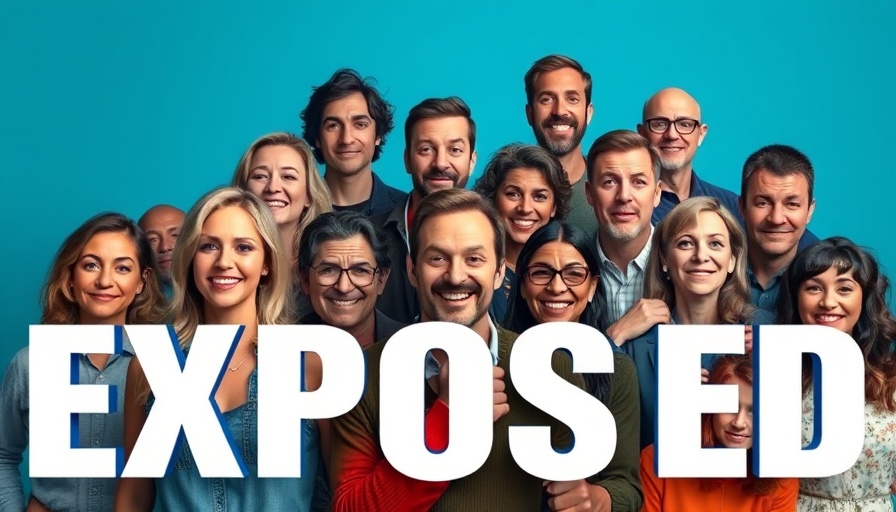
Understanding the Complexities of Marriage in Islam
In the ongoing scandal surrounding Mohammed Hijab, a prominent figure in the dawa community, it’s crucial to unpack the layers of deceit and the implications for those involved, particularly women. The recent developments have shed light on not just Hijab’s personal conduct but the broader systemic issues within Islamic marriage practices. For women within these frameworks, the potential for exploitation becomes starkly apparent. Hijab's case, involving a purported hotel wife, has kindled discussions about accountability and the moral responsibilities of those in positions of influence.
In 'New Leaks in Mohammed Hijab's Hotel Wife Scandal! (LIVE with Abdullah Sameer)', the discussion dives into the problematic issues surrounding Islamic marriage, prompting a closer inspection of the systemic injustices faced by women.
The Dawa Culture: Undercurrents of Manipulation
Abdullah Samir and his wife, both ex-Muslims, discuss the difficulties faced by women in the community when dealing with figures like Hijab, who wield significant religious authority. Hijab's initial allure as a knowledgeable guide quickly devolves into a tale of manipulation, where the alleged ease of his charisma masks his true intentions. This narrative illustrates how vulnerable women, often unaware of the underlying power dynamics, become targets for such predatory behavior.
Decoding 'Misar' Marriage: A Cautionary Tale
In the context of Hijab’s actions, the concept of 'Misar' marriage is particularly pertinent. This form of temporary marriage, often pressured upon women, raises questions about ethical standards within Islamic law. Abdullah and his wife share insights into how this framework is often used to exploit women under the guise of religious tradition. Hijab's case exemplifies the perils of such arrangements, leaving many questioning the integrity of a system that permits such practices.
Evidence and Trust: The Crumbling of Credibility
As the dust settles, a pattern of deception emerges from Hijab’s side. Reports indicate the existence of manipulated communications and artificial intelligence-generated evidence aimed at discrediting the victim. This underscores an alarming trend within the community, where those in power—and their followers—refuse to acknowledge or rectify their wrongs. The continuous cycle of blame reflects a broader cultural issue regarding accountability, particularly for male figures.
Aisha's Story: Beyond the Scandal, a Call for Justice
Aisha’s experience is not just a scandal; it symbolizes the struggles faced by many women in similar positions. Speaking out against respected figures like Hijab often subjects women to hostility and further victimization. Her resilience and determination to expose the truth serve as a rallying cry for justice, challenging the status quo that allows such actions to go unchecked. Indeed, Aisha’s plea for support reflects a larger need within Islamic communities—a call for protective measures and equitable treatment of women.
A Community at Crossroads: The Role of Islamic Scholars
The inaction of Islamic scholars in addressing these issues is particularly disheartening. The community's silence sends a strong message about the values placed on preserving reputations over the well-being of individuals. Advocates like Aisha are demanding accountability from these scholars, pushing for a reevaluation of the practices that currently enable such abuses. Shouldn’t the moral upholders of the faith lead by example, ensuring safety and justice for all members of the community?
Creating Pathways for Change
In the wake of these scandals, there emerges an opportunity for dialogue and reform. Initiatives aimed at educating both men and women about their rights in marriage are essential for fostering a healthier community. By engaging in discussions about accountability, ethical treatment, and personal responsibility, communities can begin to dismantle harmful cultural practices that have persisted for too long.
No longer does this issue reside solely within the walls of personal relationships; it extends to the entire Islamic framework, necessitating a reexamination of longstanding traditions that no longer serve justice. In a world where women are often relegated to secondary status, their voices must be amplified now, serving not just as cautionary tales but as vital contributors to the discourse surrounding modern Islam.
Call to Action: Embrace Empowerment and Justice
In light of these revelations, it is critical for members of the Islamic community—including both scholars and laypeople—to reexamine their values and practices surrounding marriage. The need for transparent conversations and actionable changes has never been more pressing. By supporting initiatives aimed at safeguarding women and cultivating respectful relationships, we pave the way for a better future for all.
 Add Row
Add Row  Add
Add 








Write A Comment